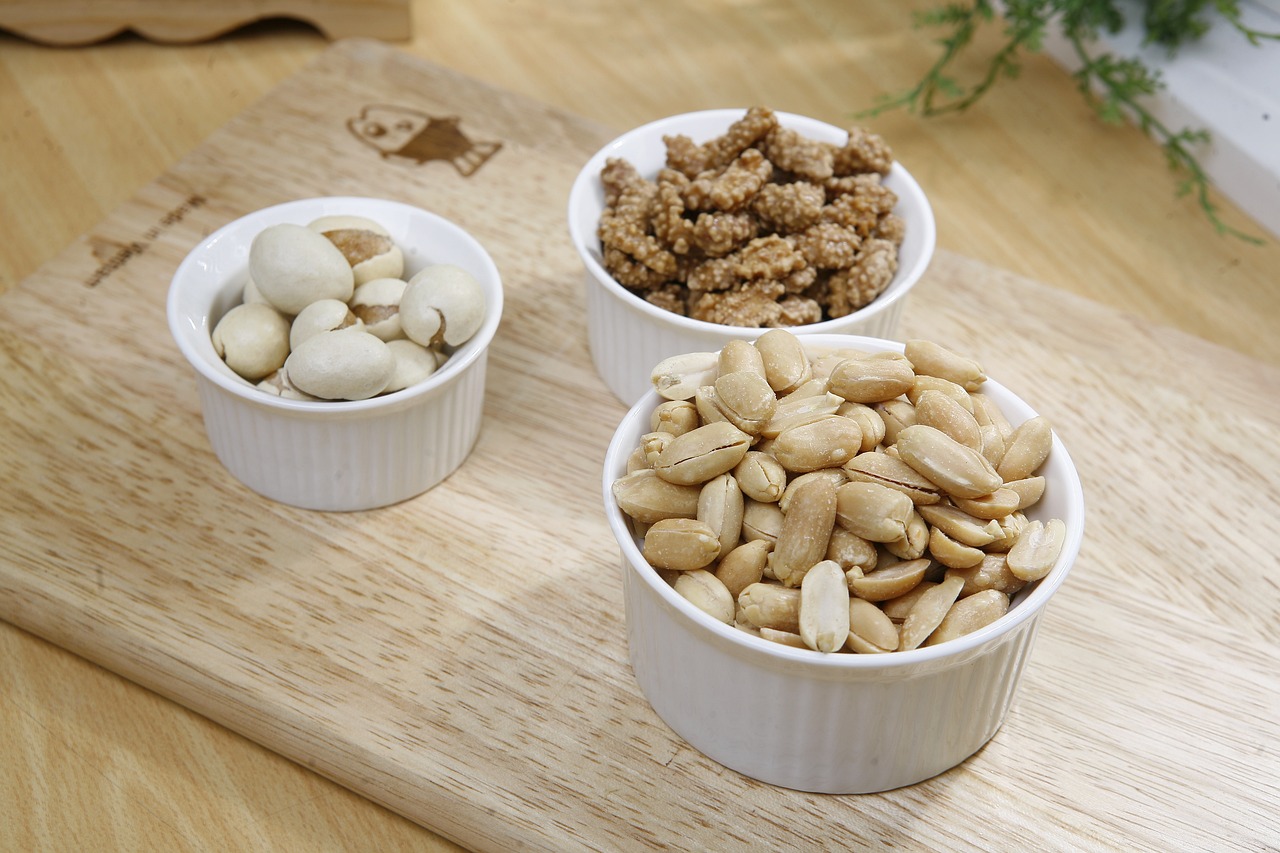First impressions are important - this also applies to the nursing home
The experience when you arrive at a nursing home can be very varied. Some nursing homes have a welcoming vestibule full of life and activity. Others are closed and difficult to access. To some extent, the possibilities of having activities are controlled by the architecture, but to a large extent it is about the commitment we who work in care put into making it welcoming and inviting to participate in activities.
 Foto: Mostphotos
Foto: MostphotosCreate life and movement in the nursing home through meaningful activities
Nursing homes play a crucial role in the lives of many seniors, and it's important that these places are not only seen as places for care but also as communities where life continues to thrive. Creating life and movement in the nursing home is not only possible but also highly desirable. It gives the elderly a sense of belonging, joy, and a meaningful old age.
Promote Social Interaction
One of the most important aspects of creating life in the nursing home is promoting social interaction. Many elderly individuals experience loneliness, and an active social community can be a powerful remedy. This can include:
Group Activities: Organize regular group activities such as game nights, bingo tournaments, or communal meals where the elderly can meet and socialize.
Interactions Across Generations: Collaborate with schools or preschools to organize events where older and younger generations can interact and learn from each other.
Interest Groups: Create interest groups based on common interests such as gardening, reading, or crafting.
Physical Activity: Physical activity is key to good health regardless of age. Exercise and training, such as simple workouts that match the physical abilities and interests of the elderly, such as chair exercises and walking groups.
Dance: Dance is a fun and social form of exercise. Regular dance nights or dance lessons promote joy and movement.
Gardening: For those who love outdoor activities, gardening can be an excellent opportunity to get fresh air and exercise.
Art and Culture: Cultural activities and artistic expressions are not limited by age. Elderly individuals often have a wealth of life experiences that can enrich these areas. You might have art exhibitions for local artists, painting classes, reading circles, etc.
Theater and Music: Organize theater performances, music recitations, or music nights where the elderly can participate or enjoy performances.
Storytelling and Sharing Memories: Create an environment where the elderly feel encouraged to share their life stories and experiences.
Learning and Development: Learning is a lifelong journey. Promote education and personal development through courses and workshops. Offer courses and workshops on various subjects that interest the residents, such as language courses and computer training.
Autonomy and Participation: Finally, it's important to consider that the elderly themselves play a crucial role in creating life in the nursing home. Foster their participation by involving them in the planning and implementation of activities.
Creating life and movement in the nursing home is about creating an environment where the elderly can thrive, grow, and feel like a part of a community. It's about recognizing and celebrating their lifelong experiences and continued contributions to society. By embracing this philosophy, nursing homes can become vibrant places that not only provide care but also a meaningful old age.
Activity Planning
Some activities may require more extensive planning, such as arranging for a troubadour to visit the facility. It can also be something small, like spending some time with the daily newspaper, reading something together, and discussing current events or singing a song together, which can brighten up the elderly residents' lives. Some facilities organize barbecue parties, park days, and dances. Others have painting circles, reading circles, and pub nights.
Activities are important for well-being. Today, all nursing homes offer activities for residents. It can be challenging to find activities that suit everyone. It's essential to keep track of those who do not participate in activities and consider what can be offered to them. Following up and considering how to reach those who do not spontaneously participate in the offerings is part of quality work in a nursing home.
It is crucial to offer everyone the opportunity to participate in activities and outdoor activities. Some elderly individuals decline activities and prefer to contemplate life. In the best nursing homes, spontaneous activities are a natural part of the operation. Singing, baking, talking about motorcycles, organizing pub evenings, and providing beauty care are all natural elements of the operation. Some units have their own SPA. To ensure the well-being of our elderly, someone on the staff needs to take special responsibility for planning well-thought-out activities.
This should be someone with experience and creativity, who is culturally interested and preferably has historical knowledge. There are many opportunities to organize various activities. Everything should be based on the elderly residents and their interests. It's easy to get stuck in routines and group activities like group gymnastics, bingo, or reading. It's also important to ensure that everyone has the opportunity to participate in individual activities. For individuals with advanced dementia, group participation is not always possible or even desirable. For these individuals, individually tailored activities are usually the best option.
Contact Person
A contact person should have dedicated time for the individual, and if the elderly person can express their wishes about what they want to do, the contact person should try to accommodate those wishes if possible, within reasonable limits. To make reading a pleasant activity, you can borrow well-selected books from the library. These can be books with pictures from the individual's hometown or related to different places that remind the elderly person of their childhood or other fond memories. These books can be used both individually and in groups. This turns reading into not just reading but also results in discussions about the past.
Handicrafts are also appreciated, and even individuals with dementia can often knit, crochet, and do carpentry. Painting groups can be organized for those who enjoy it. Being involved in planning and preparations for holidays also brings memories to life. Many want to participate in church services. It may sometimes be possible to arrange for the elderly person to visit the church they prefer. Many churchgoers are often willing to help with such requests. Some museums may also accept visits from elderly care facilities. Weekly plans with information about ongoing activities should be provided to the residents' units.
Today, many of our most popular songs and melodies are available on DVD. With a sufficiently large screen that everyone can see from, sing-alongs are a pleasant activity that can entertain both residents and staff. Individuals with dementia who have lost their language can often still sing. Sing-alongs are appreciated by many, and many try to join in. The songs should be well-known and liked by the elderly.
Caregiver songs are a method used in dementia care to calm and divert anxiety. In these situations, staff sing songs that they know the elderly person especially likes. It can be used in situations that would otherwise create anxiety, and the song is used as a method for distraction.
Film screenings can include films from different eras, such as newsreels that remind the elderly of the past. It can be films with well-known actors and artists. Collaboration with the library to obtain useful material is recommended.
Dance is another activity that promotes health. Some have better mobility than others. It can be fun to be part of it even without active participation. Dance music means a lot to those who enjoy dancing, and music and dance often bring back many memories.
Animals in Care
Therapy dogs have become an increasingly common feature in elderly care. Many seniors come alive when the dog visits, and emotions, thoughts, and memories come to life. Regular meetings with therapy dogs can lead to increased well-being and reduced anxiety. Therapy dogs can also be used in the rehabilitation of the elderly.
Outdoor Activities
Daylight is essential for health and well-being. Everyone needs to go outside at least once a day. Daylight affects our hormones and builds our skeletons. Osteoporosis is a common and serious problem among the elderly, which can be counteracted by the vitamin D that the body produces when exposed to daylight. Melatonin, which affects our sleep, is also produced with the help of daylight.
Walks are an excellent form of exercise that strengthens muscles, bones, and balance for those who can walk independently. Offers of and participation in activities and outdoor stays should be documented.
It should be possible to follow up on the activities offered to the residents. It should be offered. If the resident declines, it should still be documented that it was offered and attempted. Does it need to be written more clearly in the text? Many facilities have a specific activity plan where offers of and/or participation in activities and outdoor stays are documented. Without signing lists, it is also easy to miss evaluating and documenting the individual's experience of the activity. For those who have difficulty coming up with activities, many facilities have activity catalogs with suggestions for what can be done.
Reflection Questions on Activity, Life, and Movement
Care staff:
• Do you offer activities that suit all residents in your facility?
• What can you do to make activities a natural part of the operation and offer them to everyone who wants to participate?
• Are there any residents who always decline, and how do you work to motivate those who decline?
• Can you find other activities that may be meaningful to them?
• Is there room for spontaneous activities like singing or reading newspapers?
Manager, Nurse, Occupational Therapist, and Physiotherapist:
• What do I encounter when I enter your nursing home?
• Is there activity, social interaction, joy, and a friendly atmosphere?
• Are there individuals showing signs of understimulation?
• Are the activities offered at the facility suitable for all residents?
• Are there any who are not offered any activity that interests them?
• Is the work organized in a way that nursing assistants have the conditions to help residents with various activities?
• What do you do to motivate staff to work with activities?
• How do you plan and support the individual's need for activity as well as the activities of the common operation?
• Is there dedicated time with a contact person for the resident, and does the contact person receive guidance so that the time can be used effectively?
Residents and Family Members:
• Do you feel that the environment is welcoming?
• Are activities offered to your loved one that suit them?
• Does your loved one have dedicated time with the contact person?
• Is participation in activities documented?
Erland Olsson
Head nurse
Sofrosyne
Better care every day

Aktuellt i media
-
2025-04-23 04:00
13 Hygien
Storage tends to attract all the world's junk. Order, clearing and cleaning of storage is a necessary recurring task.
info Bild: Pixabay
Bild: Pixabay -
2025-04-14 04:00
08 Förebyggande o lokaler
The art of furnishing a nursing home, a balancing act between homeliness, functionality, and hygiene aspects.
info -
2025-04-10 04:00
04 Bemötande
Waking up in a nursing home - is the morning routine adapted to each individual's needs?
info Bild: Pixabay
Bild: Pixabay -
2025-04-07 04:00
09 Mat och måltid
For the elderly, it is often important to eat many snacks in order to get enough nutrition.
info Bild: Pixabay
Bild: Pixabay -
2025-04-03 04:00
04 Bemötande
What creates safety in elderly care homes - advice and tips on creating a secure environment for the residents
info -
2025-04-01 00:00
10 Aktivitet o funktionsbevarande arbetssätt
Reminiscing, working with memories, is an activity that creates a lot of added value for people with dementia.
info

